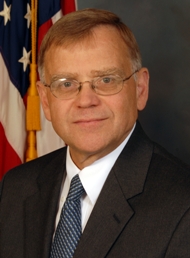
(NEW YORK) MintPress — At least one member of the Obama team did not have such a super Tuesday. There are increasing calls for the ouster of the Deputy Commission for Foods at the United States Food and Drug Administration (FDA), Michael R. Taylor.
President Obama appointed him to the newly created post on January 13, 2010; Taylor’s job is to ensure that food labels contain clear and accurate information, oversee strategy for food safety and plan new food safety legislation.
It would seem like a role that would garner a great deal of public support, but instead Taylor’s appointment was criticized by consumer advocates across the country. The reason: His strong ties to highly controversial agricultural biotechnology giant Monsanto, which is at the forefront of genetically modified food.
Taylor is featured in the documentaries The Future of Food and The World According to Monsanto.
Revolving door career raises eyebrows
Taylor started his professional life in 1976 as an FDA staff lawyer before moving into private practice at King & Spalding, a law firm representing Monsanto. After returning to the FDA and then moving to the United States Department of Agriculture, (USDA), Taylor went back to Monsanto as the Vice President for Public Policy from 1998-2001. After some time in academia, he returned to the government in 2009 as “senior advisor” to the FDA Commissioner.
At that time, consumer activist Jeffrey Smith, who campaigns against genetically modified foods, wrote on his blog:
“The person who may be responsible for more food-related illness and death than anyone in history has just been made the US food safety czar. This is no joke.”
Smith’s condemnation apparently fell on deaf ears, but now the President is facing renewed pressure. A petition on Signon.org begins “President Obama, I oppose your appointment of Michael Taylor” and continues, “Taylor is the same person who was Food Safety Czar at the FDA when genetically modified organisms were allowed into the U.S. food supply without undergoing a single test to determine their safety or risks. This is a travesty.”
Signees of the petition point to scientific research that has found genetically modified foods could be a cause of cancer and chronic illnesses.
Taylor’s tenure at Monsanto
During Taylor’s employment with the company, he oversaw the development and marketing of Monsanto’s genetically engineered bovine growth hormone. (rbGH/rbST), which has been discredited by many medical organizations and hospitals warning of the potential health risks of milk from injected cows.
Bovine growth hormone was in fact banned from use in Canada, Australia, New Zealand, Japan and all European Union countries (currently numbering 27), by 2000 or earlier. In the United States, public opinion has also turned against it, causing a number of products and retailers to become rBST-free.
“Worst company”
Public opinion was largely responsible as well for Monsanto receiving the Worst Company of 2011 Award from natural health information website NaturalSociety.com for threatening both human health and the environment.
According to an anonymous 2001 document obtained by the Center for Public Integrity, Monsanto was identified by the U.S. Environmental Protection Agency as being a “potentially responsible party” for 56 contaminated Superfund sites in the United States. The company has been sued, and has settled, multiple times for damaging the health of its employees or residents near its Superfund sites through pollution and poisoning.
Monsanto is also the largest producer of genetically engineered seed and glyphosate herbicides. A report released in June 2011 linked glyphosate to birth defects in frog and chicken embryos.
In 1998, Monsanto’s director of corporate communications explained the company’s regulatory philosophy to activist and journalist Michael Pollan, saying “Monsanto should not have to vouch for the safety of biotech food. Our interest is in selling as much of it as possible. Its safety is the FDA’s job.”
Backlash overseas
Last month, Monsanto announced that it was abandoning its plans to sell its insect-resistant maize in France. Six European countries have banned the cultivation of genetically modified maize. “Until France has a stable business and regulatory environment based on sound science, commercialising GM technology is not practical for Monsanto,” said a spokesman for Monsanto UK.
The statement followed protests outside a shareholders meeting at one of Monsanto’s plants in southern France. The activists later said they were pleased with the decision.
As for the anti-Monsanto petition in the U.S., in the past week alone it has gained roughly 425,000 signatures, just shy of its ultimate goal of 450,000.
President Obama, take note.


